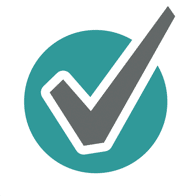
Spoken vs. Written French: What Are the Main Differences?
You’re sitting in a café in Paris, pencil in hand to write the next great French novel.
But where do you start? How do you build your French writing skills to become proficient at written French?
I’m here to tell you about the different aspects of written French and share some valuable pointers to get you writing with confidence in no time.
Contents
- Main Differences Between Spoken and Written French
- 1. In Spoken French the “ne” is Removed
- 2. The “e” is Often Left Behind in Spoken French
- 3. Contractions are More Common in Spoken French
- 4. With Written French You Don’t Have to Worry About Listening
- 5. Written French Isn’t Phonetic at All
- 6. Written French Includes “Literary” Tenses
- 7. Grammar is Far More Important in Written French
- Tips and Strategies for Improving Written French
- Essential Tools for Your Written French Toolbox
- And one more thing...
Download: This blog post is available as a convenient and portable PDF that you can take anywhere. Click here to get a copy. (Download)
Main Differences Between Spoken and Written French
Mastering written French is necessary for those who want to become fluent in French. It’s really a skill of its own—many people say that written French is practically its own language. As such, with written French, you have to focus on a different skill set.
Here are some of the major differences you’ll encounter with written French versus spoken French:
1. In Spoken French the “ne” is Removed
One way in which written and spoken French differ is in terms of negation. Generally speaking, the structure ne… pas is used in French to form negative sentences. For example:
Je ne sais pas quelle heure il est. (I don’t know what time it is.)
However, while this is the correct grammatical structure and should be used in written French, in informal spoken French, native speakers commonly leave out the ne, and would instead say:
Je sais pas quelle heure il est.
Note that this sentence maintains exactly the same meaning as the previous sentence, however, it’s far more informal in tone.
2. The “e” is Often Left Behind in Spoken French
Simplifying phrases is a key part of informal spoken French. In spoken French, as well as removing the ne in negation phrases, it’s also common to leave out the e.
For example, in spoken French, the previous sentence listed above would become:
J’sais pas quelle heure il est.
Here, you can see that the subject pronoun je (I) has lost the e and is instead pronounced as j’.
Again, this is only permitted in informal spoken French. When writing in French, this should generally be avoided.
3. Contractions are More Common in Spoken French
As you have seen above, contractions are more common in spoken French than in written French. As well as shortening je to j’, there are also a number of other common contractions that you’ll hear:
| Written French | Spoken French | English |
|---|---|---|
| Tu es | T'es | You are |
| Tu as | T'as | You have |
| Il y a | Y'a | There is |
It’s worth noting that these contractions are very informal, so you would only use them in spoken French. Unless you’re writing an informal message to a friend or family member, you should avoid using these contractions in normal written French.
4. With Written French You Don’t Have to Worry About Listening
Students often find written French easier than spoken French. This is because there are lots of French-English cognates—or, words that look similar in both French and English.
| French | English |
|---|---|
| Intéressant | Interesting |
| Téléphone | Telephone |
| Comédie | Comedy |
| Parfait | Perfect |
Even beginner students can look at a text in French and guess the meaning of many words. It’s the tricky French pronunciation that trips up English-speaking learners! So, when learning written French you can focus on grammar without stressing too much about listening comprehension.
5. Written French Isn’t Phonetic at All
There’s a slight caveat to what I just said. Reading French may be a breeze for English speakers, but writing in French is not at all intuitive. French is one of those languages that isn’t spoken as it’s written.
Sometimes long words will only have one or two syllables when pronounced. Sometimes a word will end in a consonant that you can’t possibly hear!
| French | English |
|---|---|
| Banque | Bank |
| Beaucoup | A lot |
| Chat | Cat |
| Mont | Mountain/mount |
So, if you’ve been mostly learning French through video and audio immersion, be prepared: you’ll have to put some effort into learning French spelling.
6. Written French Includes “Literary” Tenses
Generally, in class you’ll be exposed to the verb tenses that are used when speaking: the passé composé, the imparfait and so forth. So you may be surprised to find tenses such as the passé simple when you read, especially in older or more advanced texts.
These tenses may not be covered in class, but you’ll find plenty of online resources to practice them on your own.
7. Grammar is Far More Important in Written French
You might be asking: “Isn’t grammar important for spoken French as well?” Well, yes. But the difference is that if you make a mistake while speaking, it’ll quickly be forgotten. If you make a mistake in your writing, say in a report for work or a term paper for class, it’ll be there forever. This is why you should make comprehensive grammar practice part of your project to learn written French.
Tips and Strategies for Improving Written French
A major flaw of many French classes is the lack of long-form writing. Students do lots of sentence-long exercises, for sure, but in reality, that’s not how people tend to write in their native language. Fortunately, with a wealth of internet resources available at your fingertips, practicing written French is a breeze. But where should you begin?
Look for a French-speaking Language Exchange Partner
You may have heard this tip before. Your teacher may have even made you find a penpal as a homework assignment. This is because actually writing with another person is a great way to get used to writing in real-world scenarios. What’s more, native speakers can correct your mistakes, and you can make a great friend in the process.
Some of the best sites for finding a penpal include InterPals, arguably the largest site dedicated to finding penpals in other countries, and MyLanguageExchange.com, which is like InterPals but focused on language learning. On both of these sites, when making your profile, you can specify your native language and the language you’re learning.
If you’d rather use an app to find a language exchange partner, there are also plenty of language exchange apps available to download. For example, two of the most popular apps are Tandem and HelloTalk.
Join French-language Forums

Forums are a great resource for learning written French. They offer some very unique advantages, which are different from what you’ll get from classroom exercises or a penpal relationship.
If you find a forum for a particular hobby or interest that you enjoy, you can learn lots of vocabulary specific to that subject. For example, if you like gardening, you can check out AuJardin.org.
In these forums, you’ll learn lots of French slang, which is a double win! Like with a penpal relationship, forums train you to make your French understandable to other French speakers, which is fantastic practice.
If you’re looking for a general chat group where you can talk about anything and everything, check out /r/france, Reddit’s largest French-speaking forum. From there, you’ll find links to smaller French-speaking subreddits (forums) for every interest imaginable.
Practice Written Translations
Yes, the idea of written translations sounds very… 19th century. But hear me out. Translation is coming back into favor as a language acquisition technique, and it has real benefits for beginning and advanced learners.
There are some great translation exercises out there where you can translate to French and check your work. Another method is to translate Wikipedia articles and check how you did by comparing your translation to the official French article.
Once you’re an advanced speaker you can even volunteer as a translator or find work as one. Translation is one of the best methods to practice your written French because to complete a good translation you’ll need to research both grammar and vocabulary. Translation helps you learn the nuance of the French language, such as when you have to decide how to translate a specific word based on context.
Read, Read, Read
Surely you’ve read French before, either in classroom exercises or in homework. But now’s the time to go above and beyond what’s required. If you want to write French well, you need to know how it’s written. And that means you have to read.
Try to spend at least 15 minutes a day reading something that interests you. That could be a French newspaper or some French short stories. Take the time to look up words you don’t understand, but don’t worry if there are lots you don’t know. That’s how you learn more vocabulary.
Do a Daily Writing Prompt
Writing prompts are a great way to get your creative juices flowing. For example, you could start with the question: “If you could’ve been born in any decade, which would you choose?” Set a timer, sit down and just write whatever comes to mind in French. After, you can go back and check for grammar and spelling.
Writing prompts help you practice writing essays, so they’re great practice for standardized French exams. They also allow you to learn vocabulary about diverse topics. Some of the best sites for finding free writing prompts are A Vos Plumes! and The Daily Post.
Essential Tools for Your Written French Toolbox
None of us are experts, and we all need resources to check our grammar and look up words. These are some of the best online support resources available for writing in French.
WordReference
The first tool you need for your written French is a comprehensive dictionary.
Although there are some great classic dictionaries out there, I honestly don’t remember the last time I looked up a word in a physical dictionary, and my guess is you don’t either. WordReference is hands-down the best online dictionary available. Every French word comes with its translation to English, its gender and some example sentences.
You can even look up expressions and slang terms. One of the best features of WordReference is its active forum. At the bottom of each dictionary definition page, you can find user questions pertaining to the word you looked up. This is great for learning how a word can be used differently depending on the country.
FluentU
One of the best ways to learn how to write French is by seeing the language in action.With FluentU, for example, you can see language in context in real French media with the help of interactive subtitles, which you can use to find the meaning of vocabulary and examples of the term used in other videos and example sentences.
FluentU takes authentic videos—like music videos, movie trailers, news and inspiring talks—and turns them into personalized language learning lessons.
You can try FluentU for free for 2 weeks. Check out the website or download the iOS app or Android app.
P.S. Click here to take advantage of our current sale! (Expires at the end of this month.)
BonPatron
BonPatron can be an absolute life-saver for French writers. With BonPatron, you can copy and paste entire passages of written French and see all the grammatical mistakes you made. Not only does BonPatron highlight the mistakes you made, it also explains why each one is a mistake and even suggests alternatives. It’s surprisingly detailed and can even correct accents and conjugation mistakes.
Linguee
Speaking of context, Linguee is a great resource for looking up entire sentences or passages in French. If you know the definition of a word but you don’t understand its context, type it into Linguee’s translation dictionary.
Linguee then scours the internet to find all references of that word within sources that have already been translated between English and French. That way, you can see the French word within the context of a sentence, side-by-side with the same sentence translated into English.
Google Search
What? I’m recommending Google?! That’s right. Google search is an amazing tool for checking your grammar.
You can search any French phrase in quotes, which will return only websites where that exact phrase is used. Then, look at the number of results to gauge if the phrase is written correctly. If you get lots of results, that means native speakers write the phrase in that way.
This is especially good for hammering out the nitty-gritty details of language learning, such as article usage.
For example, imagine you want to say “learn to …” but you don’t know if it’s correct to say apprendre à or apprendre de. Just go to Google and type “apprendre à programmer” (learn to program), which gives over a million results. You’ll see that “apprendre de programmer” only returns only about 12,000 results. Knowing nothing else, you can reasonably conclude that it’s correct to say apprendre à programmer (learn to program).
If you’re a writer at heart, learning written French will be the most enjoyable part of learning the language.
With the right tools and strategies in hand, you too can join the ranks of Proust and Sartre—or just finish your term paper on time.
Download: This blog post is available as a convenient and portable PDF that you can take anywhere. Click here to get a copy. (Download)
And one more thing...
If you like learning French on your own time and from the comfort of your smart device, then I'd be remiss to not tell you about FluentU.
FluentU has a wide variety of great content, like interviews, documentary excerpts and web series, as you can see here:

FluentU brings native French videos with reach. With interactive captions, you can tap on any word to see an image, definition and useful examples.

For example, if you tap on the word "crois," you'll see this:

Practice and reinforce all the vocabulary you've learned in a given video with learn mode. Swipe left or right to see more examples for the word you’re learning, and play the mini-games found in our dynamic flashcards, like "fill in the blank."

All throughout, FluentU tracks the vocabulary that you’re learning and uses this information to give you a totally personalized experience. It gives you extra practice with difficult words—and reminds you when it’s time to review what you’ve learned.
Start using the FluentU website on your computer or tablet or, better yet, download the FluentU app from the iTunes or Google Play store. Click here to take advantage of our current sale! (Expires at the end of this month.)










